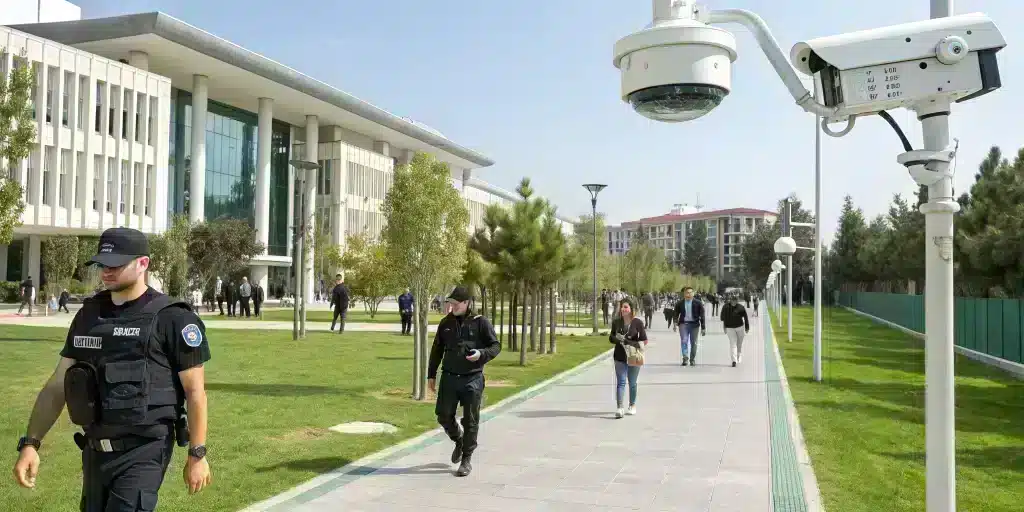Campus Safety and Security Measures at Turkish Universities
Comprehensive Security Framework
Special Considerations for International Students
Case Study: Security Measures at Koç University
Conclusion
Take the Next Step
Introduction
As international education continues to grow, ensuring campus safety and security has become a priority for universities. Turkish universities are committed to providing a secure learning environment for all students, staff, and visitors. This article explores the comprehensive safety measures implemented in Turkish higher education institutions, with a focus on how these initiatives support international students seeking a welcoming and secure place to study.
Comprehensive Security Framework
Turkish universities utilize a structured, multifaceted approach to campus safety, designed to prevent incidents and respond appropriately should emergencies arise. Some of the key measures include:
Continuous Monitoring
Most universities, such as Koç University, maintain a policy of 24/7 video surveillance. This continuous monitoring allows security personnel to quickly address any incidents and discourage potential threats by fostering a visible security presence on campus.
Professional Security Staff
Dedicated security personnel are crucial to campus safety. Turkish regulations, specifically the Law on Private Security Services No. 5188, underpin their operations. Security staff are tasked with various responsibilities, including:
- Protecting the safety of all campus members.
- Managing traffic flow.
- Preventing vandalism and theft.
- Monitoring entry and exit points to secure the campus perimeter.
Emergency Communication Systems
Turkish universities ensure that students are kept informed about safety measures and potential threats through effective communication systems. Regular security updates are disseminated both in person and electronically, providing essential real-time information.
Identification Requirements
To enhance campus safety, Turkish law mandates that all visitors and students carry valid personal identification at all times. Students are encouraged to keep both their official IDs and copies of their documents easily accessible, which is essential for verification and replacement in emergencies.
Structured Emergency Response Protocols
Universities in Turkiye are equipped with systematic emergency response plans. This includes:
- Easily accessible emergency contact numbers for security services.
- Protocols for emergencies, such as fires or natural disasters, tailored specifically for at-risk individuals, including students with disabilities.
- Regularly updated emergency supplies, with facilities designed for quick assembly during crises.
Disaster Preparedness
Campuses also feature designated emergency assembly areas and comprehensive safety kits containing food, water, and medical supplies. These provisions are routinely inspected to ensure readiness in the event of a disaster.
Promoting Personal Responsibility
Students are always reminded of their individual roles in maintaining a safe environment. This responsibility encompasses adhering to university guidelines, reporting suspicious activities, and participating actively in safety awareness programs.
Special Considerations for International Students
Integration Support
Turkish universities recognize the unique challenges faced by international students and provide tailored support to help them integrate smoothly. Upon arrival, these students receive clear safety guidelines and are invited to participate in orientation programs that outline local safety policies and available resources for assistance.
Regular Updates
International students benefit from timely notifications concerning any changes in safety protocols or security alerts. This constant stream of information helps them to stay aware of their surroundings and reinforces a sense of safety within the community.
Case Study: Security Measures at Koç University
Koç University serves as an exemplary model of best practices in campus safety. Its dedicated security department oversees a robust network of measures, including:
- Year-round, round-the-clock surveillance.
- Comprehensive disaster readiness planning, which includes specific provisions for students with disabilities.
- Strict access control systems that limit entry points to authorized individuals only.
Periodic checks on emergency supplies and pre-designated assembly points further bolster safety within their campus, providing reassurance to all students, including international enrollees.
Conclusion
Turkish universities prioritize safety and security through a multi-faceted strategy that combines proactive monitoring with responsive emergency planning. By creating a secure educational environment, they not only comply with national standards but also cater specifically to the needs of international students. Each measure contributes to a supportive atmosphere where students can thrive academically and socially.
If you are interested in learning more about how Turkish universities ensure safety for their international student population or if you are considering partnerships in this realm of education, please reach out to us. Explore the many offerings at our partner institutions, which include universities such as Aydin University, Uskudar University, and Medipol University.
Take the Next Step with Study in Turkiye
Explore further to learn how you can make your educational journey secure and fulfilling in Turkiye.

